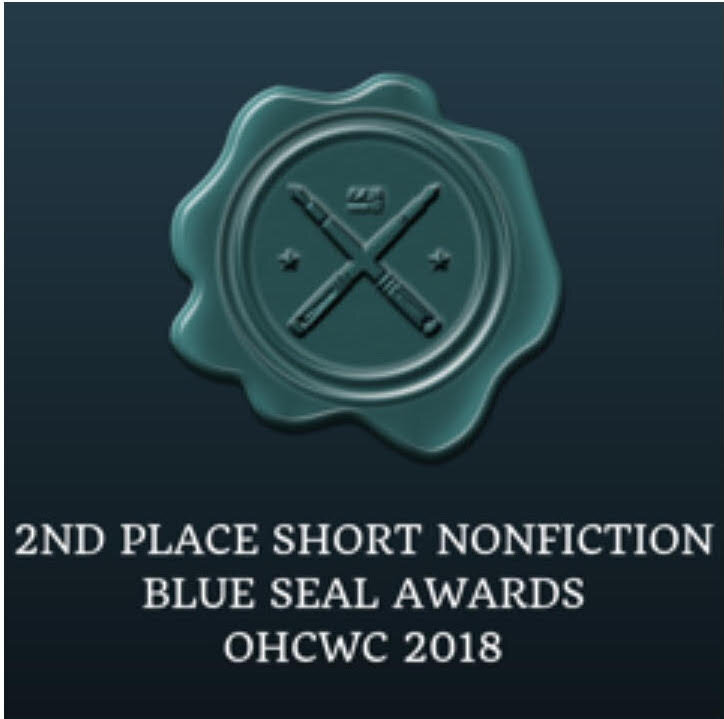Elisabeth Elliot
1926-2015
“NO!” I screamed.
Reality showed no mercy. The impersonal screen of my iPhone delivered the news that my dear friend and beloved mentor Elisabeth Elliot was with Jesus. Over the last decade, I attempted to prepare myself for this moment. Not even close. My world was now a world without her, and of all things, I learned this on Facebook. No warning, no cushion, and no “I’m sorry I have to tell you this . . .”
I immediately dialed Elisabeth’s number at Strawberry Cove. Aware of a deep ache inside of me, I wanted desperately to talk to Lars, her husband of 38 years; I wanted to hear his rich, velvety voice. He would provide the personal touch missing from a cold, social media announcement.
No, again. The answering machine clicked and waited for my message. Pain and emptiness were gaining a foothold here, and I needed to be alone with God.
After climbing the three flights of stairs to my corner office in our headquarters, I stood and stared out the window at the lovely grounds below. Sunshine and beautiful flowers met my gaze—beauty in my bereavement.
“Oh God, I worship You. I worship You for the incredible ministry she had in my life.”
Gone. With only the silence to distract me, I prayed, “Oh God, I worship You. I worship You for the incredible ministry she had in my life.”
I sat down and reflected.
Elisabeth was one remarkable lady. I met her publicly and then became acquainted with her privately. What an unspeakable privilege to have known her as my mentor and as my friend.
Soft-spoken and precise, she never wavered when it came to the choice of obedience to the Lord. No, she was not a saint, but she was certainly set apart to mark a generation with her wholehearted devotion to Christ.
“May I call you Elisabeth?
There was no mistaking her answer:
Yes, but thank you for asking.”
I experienced her clarity mixed with kindness over our first shared meal. She and Lars had flown to Garmisch, Germany, where she was a guest speaker for our annual Eastern European Women’s Conference. As conference coordinator, I made sure to take advantage of the opportunity to reserve a private meal with her. A quiet table in a European restaurant marked our sweet beginning. Over dinner, surrounded by a cacophony of noises, I ventured to ask, “May I call you Elisabeth?” There was no mistaking her answer: “Yes, but thank you for asking.” Whew.
Now that we were on a first-name basis, the real question weighing heavily on the soul of this young wife of a leader tumbled out. Suddenly, I became remarkably vulnerable with a woman I had just met, and asked, “What do you do with criticism of your husband?” Without batting an eye, she went straight to the point with precisely the answer I needed to hear.
“Well. First of all, certainly, no one likes it.” Shock. Had I heard her correctly? Heaven and earth stood still as my soul came up for air.
No being made to feel guilty for struggling. No quick-fix verse. No vague spiritual airs. No sermon or suggestion.
Just a true, forthright transparency. “No one likes it.” With that response we bonded; a treasured friendship was birthed. From that moment Elisabeth and I launched into a lifetime friendship that would leave me forever changed by her wisdom and uncommon understanding.
Honestly, I was not prepared to like her so much. But that single answer from her changed my life. I immediately knew that I could trust her; I could learn from her; I could really like her.
Over apfelstrudel and coffee, I listened intently as she shed more divine light on my painful question. “Remember, God has given him a grace to bear this criticism. You do not have the same grace that he has, but God has given him grace for the criticism. Also, remember, there is probably a grain of truth within the criticism that he needs to hear. Allow God to use this in your husband’s life.”
Repeatedly, I have returned to her teaching at a table at the foot of the Alps. Thank You, God; thank you, Elisabeth. In the coming years, I would turn to her with countless other questions. The story was always the same—unconditional acceptance and grace-filled wisdom.
Her gentleness with our children repeatedly stood out to me. As we visited on hallowed occasions around our dining room table, she treated them as if they were her own grandchildren. Their questions were handled with tenderness and respect. I smile while reflecting on the discussions.
“What was your favorite animal when you lived in the jungle?”
“The toucan.”
“Why do you use one name with your books and another with your husband, Mr. Gren?”
“When you are a writer, it is important that your readers who knew you in the past can trust you to be the same person in the present. You don’t want to confuse them with different names.”
“What was the strangest thing you ever ate in the jungle?”
“Monkey!”
Laughter followed, of course.
Elisabeth and I would go on to journey together in the coming years, mostly at a distance, but our lives intersected when geography allowed. She remained consistent: uncompromising obedience, crystal clear clarity.
“Don’t worry. When I think back on my life and consider the things I worried about, I realize it was a colossal waste of time. And keep a quiet heart.
”
Once in Budapest, as we sat drinking apple juice and eating cookies, she offered much-needed advice, “Don’t worry. When I think back on my life and consider the things I worried about, I realize it was a colossal waste of time. And keep a quiet heart.”
I miss her. One day, in The Land That Is Fairer Than Day, at The Marriage Feast of the Lamb, we will enjoy far more than Apfelstrudel and coffee.
Elisabeth modeled courageous faith. Her wisdom was gleaned from her experiences as a twice-widowed wife, mother, grandmother, missionary, Bible translator, radio broadcaster, public speaker, and best-selling author. Her many books include Keep a Quiet Heart, A Path Through Suffering, The Savage My Kinsman, and The Shadow of the Almighty.
Elisabeth Howard was born in Brussels, Belgium, where her parents served as missionaries. She graduated from Wheaton College and later went to Ecuador as a missionary. In 1953, she married a former classmate, Jim Elliot. Together they worked on translating the New Testament into the language of the Quichua Indians. Their daughter, Valerie, was born in 1955. Ten months later in 1956, Jim was killed by the Auca Indians while attempting to take the Gospel to that primitive tribe. Elisabeth continued her work among the Quichuas, and she later lived and worked among the Aucas.
She returned to the United States and remarried. Her second husband, Addison Leitch, a professor at Gordon-Conwell Theological Seminary, died of cancer in 1973. Elisabeth remarried, and until her death, she lived north of Boston, Massachusetts, with her husband, Lars Gren.
Of her own spiritual journey, Elisabeth writes, “At the age of ten, I wanted to be born again. It was very simple. I took God at His word, ‘received’ Him, and was given the power to become a child of His.”
Gateway to Joy contains significant spiritual lessons, which have been transferred from Elisabeth’s pen to my heart:
Set aside time for God.
It is a good and necessary thing to set aside time for God in each day. The busier the day, the more indispensable is the quiet period for prayer, Bible reading, and silent listening. It often happens, however, that I [Elisabeth] find my mind so full of earthly matters that it seems I have gotten up early in vain and have wasted three-fourths of the time so dearly bought (I do love my sleep!).
But I have come to believe that the act of the will required to arrange time for God may be an offering to Him. As such He accepts, and what would otherwise be “loss” to me I count as “gain” for Christ. Let us not be “weary in well-doing,” or discouraged in the pursuit of holiness. Let us, like Moses, go to the Rock of Horeb, and God says to us what He said to him, “You will find me waiting for you there” (Exodus 17:6, NEB). (A Lamp for My Feet)
Do not be afraid to tell Him exactly how you feel. He’s already read your thoughts anyway. Don’t tell the whole world. God can take it—others can’t. (Keep a Quiet Heart)
Let Him redeem it.
Are you sure your problems baffle the One who since the world began has been bringing flowers from hard thorns? Your thorns are a different story, are they? You have been brought to a place of self-despair, nothingness. It is hard even to think of any good reason for going on. You live in most unfavorable conditions, with intractable people, you are up against impossible odds. Is this something new? The people of Israel were up against impossible odds when they found themselves between the chariots of Egypt and the Red Sea. Their God is our God. The God of Israel and the God of . . . thorns looks down on us with love and says, “Nothing has happened to you which is not common to all. I can manage it. Trust Me.”
He wants to transform every form of human suffering into something glorious. He can redeem it. He can bring life out of death . . . When our souls lie barren in a winter which seems hopeless and endless, God has not abandoned us. His work goes on. He asks our acceptance of the painful process and our trust that HE will indeed give resurrection life. (A Path Through Suffering)
Pray for your husband.
Lord, grant me the vision of a true lover as I look at _______. Help me to see him through Your eyes, to read the thoughts he does not put into words, to bear with his human imperfections, remembering that he bears with mine and that You are at work in both of us. Thank You, Lord, for this man, Your carefully chosen gift to me, and for the high privilege of being heirs together of the grace of life. Help me to make it as easy and pleasant as I possibly can for him to do Your will. (Newsletter)
The life of Elisabeth Elliot has been a living example of the prayer of missionary Bette Scott Stamm, a prayer that, at sixteen, Elisabeth copied in the back of her Bible.
“Lord, I give up all my own plans and purposes, all my own desires and hopes, and accept Thy will for my life. I give myself, my life, my all, utterly to Thee to be Thine forever. Fill me and seal me with Thy Holy Spirit. Use me as Thou wilt, send me where Thou wilt, work out Thy whole will in my life at any cost, now and forever.” (These Strange Ashes)
Elisabeth left this life with the same exactitude with which she had lived it; at 6:15 a.m. on 6-15-15 she departed. Imagine that.
Living with Eternal Intentionality®
“He has also set eternity in the human heart” (Ecclesiastes 3:11).
Why would you like to spend time with Elisabeth Elliot over coffee and apfelstrudel?
What about this cameo spurs you on in your walk with Jesus?
As you consider her quotes and comments, which one that stands out more than the others to you?
Content lifted from the pages of The Leader’s Wife, Living With Eternal Intentionality®










